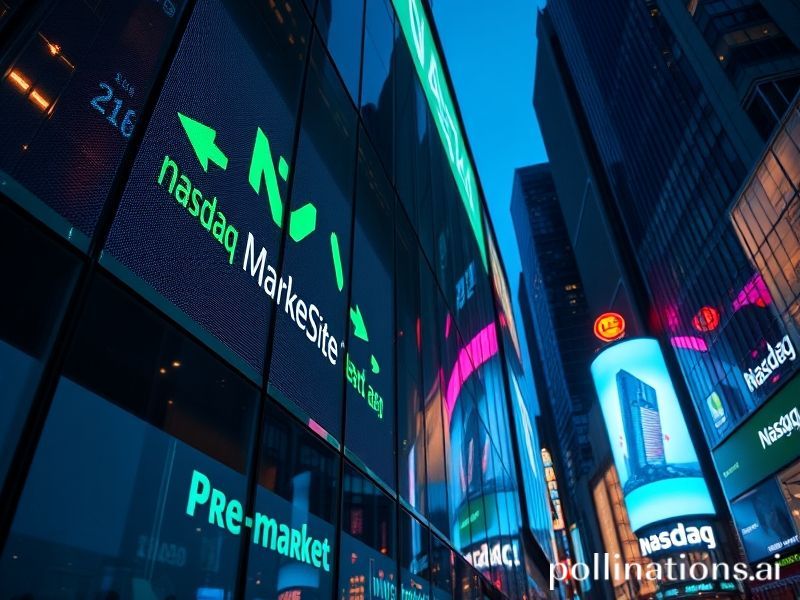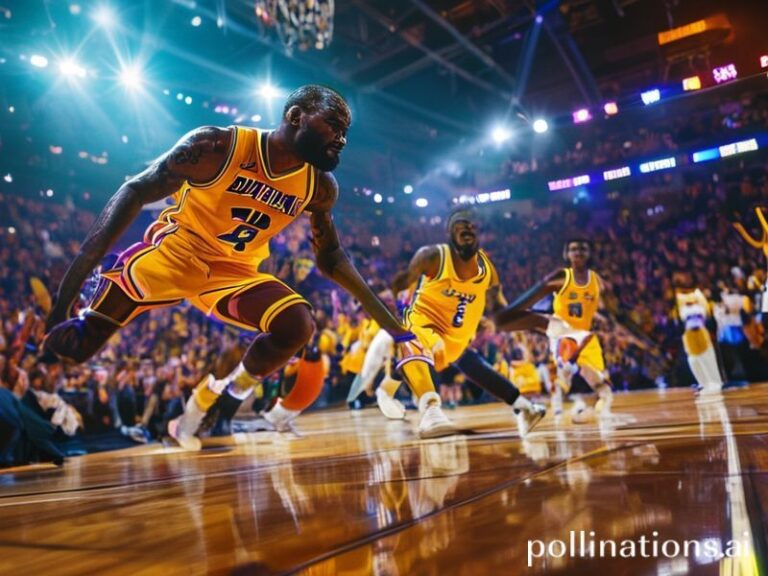NASDAQ Futures: How the World Gambles on American Tech Dreams While You Sleep
**NASDAQ Futures: Where the World’s Money Goes to Dream and Die**
The sun never sets on the NASDAQ futures market—mostly because it’s traded electronically in Chicago, Tokyo, London, and pretty much anywhere insomniacs with Bloomberg terminals gather to worship at the altar of American tech optimism. While you’re sleeping, somewhere in Singapore a trader is betting their client’s pension fund that Meta will somehow become relevant again, despite the fact that your aunt still calls it “The Facebook.”
These digital crystal balls—technically contracts obligating buyers to purchase NASDAQ index components at predetermined prices—have become the world’s favorite financial ouija board. From Zurich to Abu Dhabi, investors gather around their screens like medieval soothsayers, attempting to divine whether Apple will sell enough iPhones to justify its market cap exceeding the GDP of most countries where iPhones are actually assembled.
The beauty of NASDAQ futures lies in their democratic absurdity. A hedge fund manager in Greenwich, Connecticut, can lose $50 million on a bad tech bet faster than you can say “disruptive innovation,” while simultaneously, a day trader in Bangalore might be using his life savings to short the same position. It’s globalization at its finest: everyone gets equal access to spectacular financial self-immolation.
International investors have developed a particular fondness for these instruments, perhaps because betting on American tech stocks requires less research than understanding why European banks still exist. Why bother learning about German industrial production when you can simply gamble that NVIDIA will keep selling graphics cards to people who’ve convinced themselves they need them to mine imaginary internet money?
The ripple effects spread like a financial pandemic. When NASDAQ futures spike at 3 AM Eastern Time (conveniently during Asian trading hours), coffee futures often follow suit—presumably because traders everywhere need something stronger than optimism to face another day of pretending that Tesla’s valuation makes sense. Meanwhile, currency traders frantically adjust their positions, turning the whole exercise into a global game of musical chairs where the music is played by algorithms and the chairs are made of cryptocurrency.
Emerging markets have embraced this American export with the enthusiasm of a teenager discovering energy drinks. Brazilian pension funds, Korean insurance companies, and Norwegian sovereign wealth funds all queue up to place their bets on whether a collection of companies that mostly sell advertising and cloud storage will somehow justify their collective worth exceeding the economic output of several continents.
The real international significance becomes apparent during moments of crisis. When geopolitical tensions rise—say, when someone suggests that maybe tech companies should pay taxes somewhere, anywhere—NASDAQ futures become the world’s preferred panic button. They’re liquid enough to sell quickly but volatile enough to ensure that everyone’s equally miserable. It’s the financial equivalent of a global group therapy session, except the therapist is an algorithm and everyone’s paying $7.99 per trade for the privilege of losing money together.
As dawn breaks over each financial center, the cycle begins anew. Tokyo hands off to London, London to New York, New York back to Tokyo—a perpetual motion machine of hope, fear, and the unshakeable belief that this time, surely, that biotech startup will cure death itself and justify its 400x revenue multiple.
In the end, NASDAQ futures represent humanity’s most sophisticated mechanism for transforming coffee into both wealth and poverty, often simultaneously. They’re proof that we’ve mastered the art of making money from money, while somehow remaining perpetually surprised when the whole house of cards occasionally needs rebuilding. But don’t worry—there’s always tomorrow’s opening bell, when we can all gather again to pretend that this time will be different.







